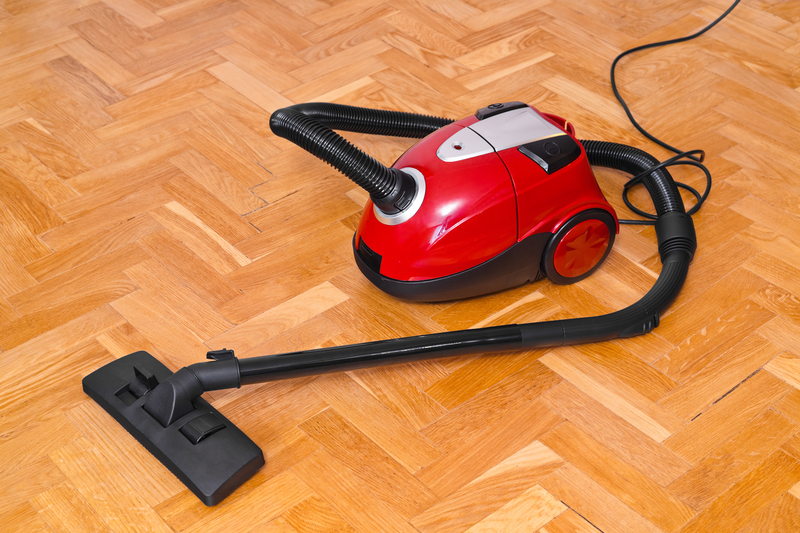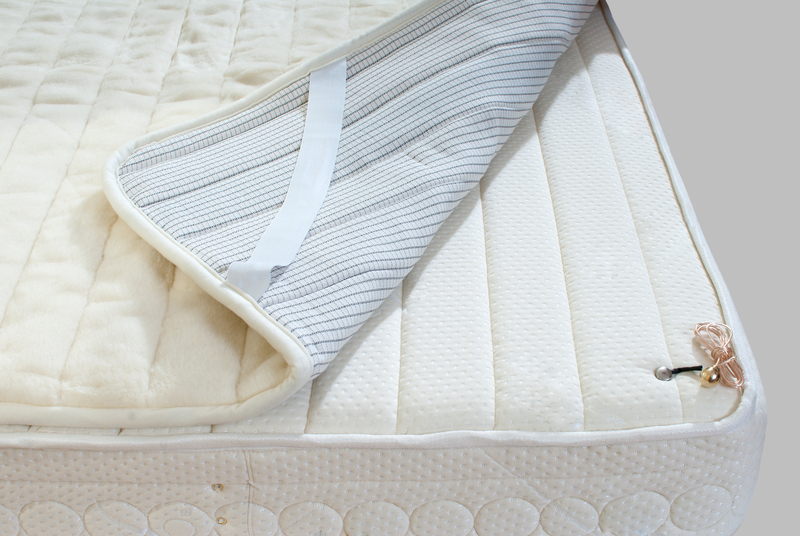Less Waste, Cleaner Home
Posted on 27/04/2025
In the pursuit of a cleaner and healthier home, we often overlook the importance of reducing waste. Adopting a minimalist lifestyle not only benefits our living spaces but also positively impacts the environment. Reducing waste is not just a trend--it's a necessity. This comprehensive guide aims to help you understand the advantages of minimizing waste and offers practical steps to achieve a cleaner home.
Why Reducing Waste Matters
The negative effects of waste on our environment are vast and far-reaching. Landfills are overflowing, oceans are littered with plastics, and the production of waste contributes heavily to pollution and climate change. By reducing waste, we can help mitigate these environmental issues while also creating healthier living conditions within our homes.

Health Benefits of a Cleaner Home
A home free of clutter and waste also contributes to better physical and mental health. Fewer items mean fewer surfaces for dust to settle, reducing allergens. Uncluttered spaces are less likely to harbor pests and mold. Additionally, an organized home can significantly reduce stress levels, promoting a sense of well-being and peace.
Practical Steps to Achieve a Low-Waste Home
Embracing a waste-free lifestyle doesn't have to be overwhelming. Small, consistent changes can make a big difference. Here are some actionable steps to help you transform your home:
1. Practice Mindful Consumption
The first step towards reducing waste is to be mindful of what you bring into your home. Before making a purchase, ask yourself if the item is truly necessary, if it can be borrowed or rented, and if there are more sustainable options available.
2. Reduce Single-Use Items
Single-use items are major contributors to household waste. Switch to reusable alternatives such as cloth napkins, silicone food bags, and glass containers. Investing in quality items may have a higher upfront cost but will save money in the long run while significantly reducing waste.
3. Implement Recycling and Composting
Recycling and composting are essential components of a low-waste lifestyle. Make sure you understand local recycling guidelines and set up a home composting system for food scraps and yard waste. Composting not only reduces landfill contributions but also creates nutrient-rich soil for your garden.
Room-by-Room Waste Reduction Guide
Kitchen
The kitchen is often the biggest source of household waste. Here are some tips to make your kitchen more sustainable:
- Shop Smart: Buy in bulk and choose unpackaged items when possible.
- Store Food Properly: Use airtight containers to keep food fresh longer.
- Meal Plan: Plan meals to avoid overbuying and wasting food.
Bathroom
The bathroom is another area where waste can accumulate quickly. Consider these tips:
- Switch to Reusables: Use washable cotton rounds, bamboo toothbrushes, and refillable soap dispensers.
- Minimize Products: Simplify your personal care routine with multi-use products.
- Opt for Zero-Waste Swaps: Swap out disposable razors, cotton swabs, and sanitary products for sustainable alternatives.
Living Room
The living room can be a hub for clutter. Streamline this space with these ideas:
- Declutter Regularly: Adopt a decluttering routine to keep your living space tidy.
- Don't Overdecorate: Choose timeless, quality decorations over trendy, disposable ones.
- Reduce Paper Waste: Opt for digital subscriptions instead of physical newspapers and magazines.
Bedroom
A peaceful bedroom promotes better sleep and relaxation. Keep it clutter-free with these tips:
- Minimize Clothing: Create a capsule wardrobe to reduce the amount of clothing you own.
- Donate Unused Items: Regularly donate items you no longer use or need.
- Organize Drawers and Closets: Use storage solutions to keep items organized and accessible.
Getting the Family On Board
Creating a low-waste home requires participation from all household members. Educate your family about the importance of reducing waste and set goals together. Lead by example and encourage them to adopt sustainable habits.
1. Educate and Communicate
Share information about the environmental impact of waste and the benefits of reducing it. Make sure everyone understands their role in waste reduction and how they can contribute.
2. Make It Fun
Turn waste-reducing activities into fun, family-friendly challenges. For example, have a contest to see who can produce the least amount of waste each week, or plan DIY projects using recycled materials.
3. Establish Routine
Create a family routine that includes recycling, composting, and regular decluttering. Assign specific tasks to each family member to ensure that everyone is involved.

The Financial Benefits of a Low-Waste Lifestyle
Reducing waste can also lead to significant financial savings. By buying less and focusing on quality over quantity, you can save money in the long term. Reusable items, though initially more expensive, often prove to be more cost-effective over time.
1. Savings on Groceries
Meal planning and buying in bulk can reduce food waste and lower grocery bills. Cooking at home instead of ordering takeout also saves money and reduces packaging waste.
2. Reduced Household Expenses
Investing in reusable products means you'll spend less on disposable items. Over time, these savings add up, allowing you to allocate funds to more meaningful expenses or savings.
3. Energy Efficiency
A decluttered and organized home is easier to maintain and clean. Less clutter can improve energy efficiency, as fewer items mean less to dust and vacuum, leading to lower utility bills.
Embracing a Sustainable Lifestyle
Transitioning to a low-waste, cleaner home is a journey that offers numerous benefits for both your immediate living environment and the planet. By implementing mindful consumption, reducing single-use items, and involving the whole family, you can create a sustainable and peaceful home.
Remember, every small step counts. Start with one area of your home and gradually implement changes. Celebrate your progress and enjoy the satisfaction of contributing to a cleaner, healthier, and more sustainable world.
Latest Posts
Uncovering the Benefits of Hot Water Extraction
Save Time on Bathroom Cleaning Chores
Quick House Clean in 30 Minutes








